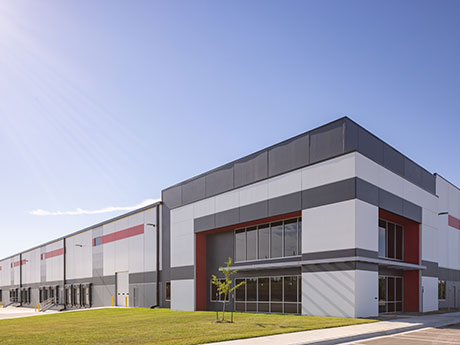By Mike Stromberg, Opus
Kansas City made the list of emerging industrial markets back in 2016, and over the last nine years has more than proven itself to be a viable, profitable and competitive environment for development.
Many rightly attribute the market’s continued growth to its central location within the U.S. as well as its transportation infrastructure, which includes the city’s location on the largest navigable inland waterway, at the cross-section of three interstate highways and in the middle of cross-country rail corridors running from Canada to Mexico and from coast to coast. These are unquestionably appealing features for businesses that want and need to quickly distribute products and access customers.

Other qualities often lauded include a strong skilled labor pool with an estimated 2.4 million people — nearly 23 percent between the ages of 18 to 34 — living within a 50-mile radius of the city; a cost of living up to 14 percent lower than the national average; a historically low unemployment rate; and increasing wages above the national average.
What really puts Kansas City on the map for developers, though, is how the state of Missouri has created a pro-business environment that leverages and advances these strengths. Conventional wisdom suggests that location is everything, but without supportive leadership and business-friendly policies and programs, location is of little consequence.
The pro-business playbook
While no state, leader or legislative body is perfect, Missouri has found a way to prioritize economic growth in a way that benefits the state, industrial developers and industrial businesses. This is especially good news given the development and financing woes of the last few years.
Missouri, for example, has one of the country’s most competitive tax environments with a low corporate income tax rate and various business tax credits and incentives that encourage economic development and reward job creation, business expansion and construction of manufacturing, agriculture, energy, technology and bioscience facilities.
The state prioritizes reducing regulatory burdens and cutting red tape to make it easier and less costly to conduct business there. According to the Mercatus Center at George Mason University, Missouri is firmly in the bottom third on its list of most regulated states.
The state’s FY 2023-2027 Statewide Transportation Improvement Program allocates $10 billion of federal and state revenues for transportation with a focus on preventive maintenance to the state’s 34,000 miles of state and interstate roadways and its 10,400 bridges — the kind of infrastructure funding critical to ensuring businesses can benefit from Missouri’s enviable geographic location.
State leadership consistently advances pro-business legislation too. Just this past summer, Missouri’s governor signed into law bills to expand broadband capacity throughout the state and strengthen Missouri’s energy grid and to reduce the complexity of the state’s tax laws to make it easier and less expensive to operate a business.
Case study: Liberty
Liberty, Missouri, has long been on the forefront of growth and development in Missouri and the western U.S.; in fact, it is the second oldest incorporated town west of the Mississippi River. Today, the community is known for its commitment to economic development and to actively pursuing its goals of creating quality jobs, encouraging private investment and promoting a positive business climate.
In terms of being pro-business, Liberty is on a city level what Missouri is on a state level: exemplary, particularly when it comes to industrial development. Already, five of the town’s 10 largest employers are industrial businesses, and the city is experiencing more industrial growth now than at any other time in its history.
One example of this growth is Liberty Heartland Logistics Center, a three-phase development led by Opus that is located just off I-35. Phase I is an 847,475-square-foot build-to-suit distribution center for Hallmark, which moved into the facility in March 2023.
Phase II includes two speculative buildings totaling 812,000 square feet. In April 2024, TAB, an international manufacturer of industrial batteries, moved into 66,700 square feet that houses its first U.S. headquarters and assembly and distribution operations. Animal Health International, a global distributor of animal health products, will open its new 255,000-square-foot distribution center this coming March.
Partnering with a city as forward-thinking as Liberty was critical to this development advancing and to the active leasing now taking place at Liberty Heartland Logistics Center.
Of the city’s support, Liberty Mayor Greg Canuteson says, “The City of Liberty is committed to fostering a vibrant economic development environment to attract and retain private sector investment and jobs in Liberty. We are proud to partner with developers like Opus to provide the space needed to expand businesses like Hallmark and Animal Health International that already have a presence in Liberty. We are also thrilled to create dynamic opportunities for new companies like TAB for its U.S. headquarters.”
As Opus looks at the viability of a potential Phase III development at Liberty Heartland, its partnership with the City of Liberty and city leaders will be at the top of the list of reasons to proceed.
Mike Stromberg is director of real estate development with Opus. This article originally appeared in the January 2025 issue of Heartland Real Estate Business magazine.


